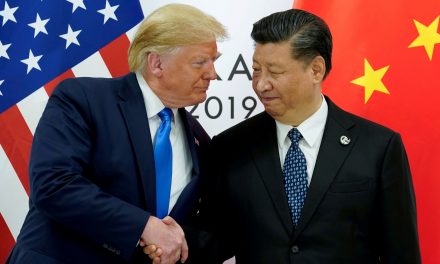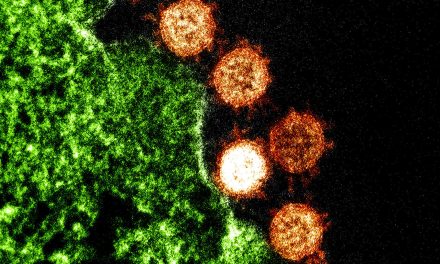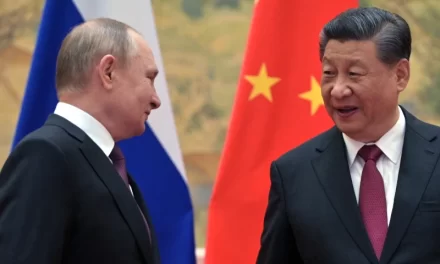BY BRADLEY A. THAYER AND LIANCHAO HAN
“Seize the day” is always good advice, and it applies in this moment to the United States. Given the devastating effects of the coronavirus on public health and the world’s economy, the U.S. must act expeditiously. China is rightfully, but temporarily, on the back foot because of its handling of the virus first detected in Wuhan. The world has witnessed atrocious behavior by the Chinese Community Party (CCP) since at least December, when the COVID-19 outbreak was accompanied by a sordid amalgamation of lies, suppression of the truth, effort to shift responsibility, and misrule that only a communist government could achieve.
The U.S. must seize the opportunity presented by China’s strategic missteps. Beijing has given Washington the opportunity to unite the world against it in a way that even its suppression of human rights has not — with the mistreatment of China’s Muslim minority in Xinjiang, threats against Taiwan, and the crushing of Hong Kong protests. This virus will leave lasting scars on many countries, millions of people, and the world economic order.
For that reason, the U.S. must take four measures:
First, recognize that China is no longer just a rival. It is the most serious threat to our national security and the existing world order. The U.S. must call the world’s attention to what should be obvious — that China enabled this pandemic — despite the CCP’s efforts to deceive the world about the virus’s origin. As part of its propaganda campaign, Beijing has emphasized its efforts to place a Band-Aid on a gaping head wound by providing defective medical equipment to other countries. The U.S. and its allies must demand a reckoning for the CCP’s actions and draw attention to the regime’s true nature and misrule.
Second, reverse China’s penetration of international institutions. The performance of the World Health Organization (WHO) during the pandemic, for example, augmented China’s deception. Reversing China’s infiltration means examining the behavior of the leadership of nongovernmental organizations, many of the world’s governments, financial markets, media organizations and industries that Beijing has worked to capture.
Third, Washington must declare where it stands. This means advancing the U.S. conception of world order — a free, egalitarian political system that protects the rights of individuals — and ending dependence on the CCP for medicines, medical equipment, 5G technologies and other sinews of modern economies. The present order was under tremendous strain even before the pandemic, and now it must evolve. The U.S. must make itself a leading producer of pharmaceuticals and medical equipment once again, so that the world has a safe, reliable and secure supply when another pandemic happens.
But that is only the start. The U.S. also must strengthen its defenses. It needs Project Bioshield and related shields involving information technology (IT) and space. The goal is to ensure that the People’s Liberation Army cannot take command of this new “strategic commanding heights” of biowarfare, as Guo Jiwei described in his 2010 book, “War for Biological Dominance.” In short, we must prevent planned, accidental or natural biological destruction. Americans must employ the ingenuity, spirit and production capacity that our forebears displayed during World War II to keep the world free. It’s equally important to shield IT design and production so that the world will not be held hostage by IT viruses and malware from China, which has worked to gain supremacy in artificial intelligence, big data and cloud computing.
At the same time, the U.S. must ensure that it provides investment and infrastructure for economic development in other countries. This means working with Wall Street to aid developing countries as readily as Wall Street did China’s development, and ensuring that Wall Street polices its capital so that the CCP cannot tap into it.
All of these measures entail a sharp break with decades-old ideas and behavior — a break that is long overdue. Any attempts to secure a restoration should fail as long as the CCP holds its power.
Fourth, the U.S. must contrast its vision with China’s. Beijing seeks to exploit the world’s resources and populations for its benefit. Certainly with the COVID-19 pandemic, the CCP’s behavior and unwillingness to acknowledge its mistakes have cost the world dearly. It acted out of fear that the coronavirus outbreak would further Xi Jinping’s loss of legitimacy and destabilize the CCP. A major implication of the pandemic for Chinese politics is more suppression within the party and of the larger population. If the U.S. demonstrates the contrast between its ideology and China’s, people all over the world might see which vision is better for the global population.
To not seize this opportunity may condemn the world to complacency once the immediate health crisis from the pandemic subsides. The virus has given the U.S. a chance to save itself from the CCP’s objectives and the perverse ideas advanced by its courtiers on Wall Street and K Street, in Silicon Valley, and at some Western think tanks, universities and media organizations.
It is up to the U.S. to “seize the day” to establish a better, more secure global economy, but also to defeat the CCP.
This article first appeared in The Hill on 04/26/20 12:00 PM ET























